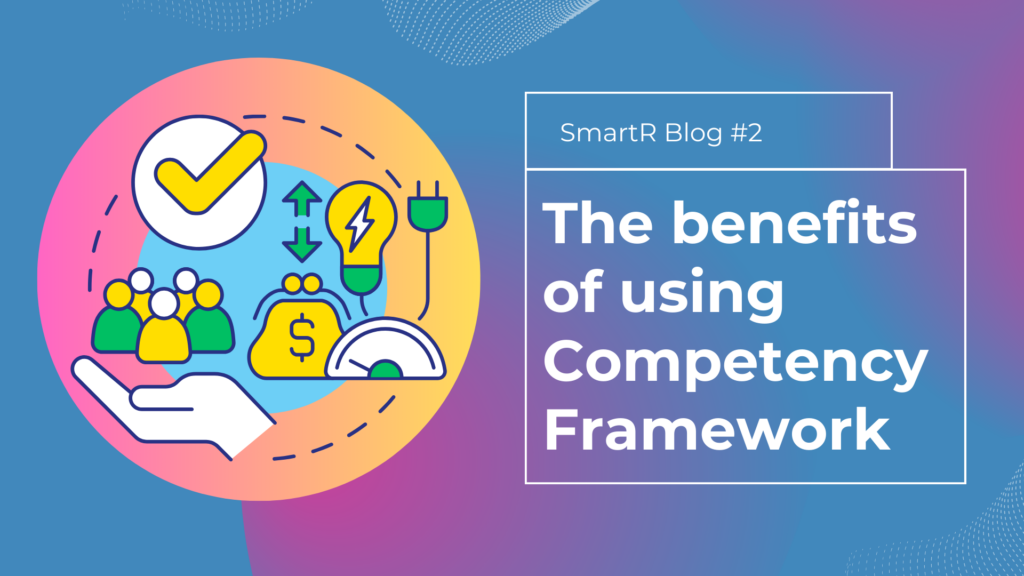In the current dynamic and competitive business environment, businesses are always looking for methods to improve their processes, boost worker productivity, and achieve their strategic goals. One powerful tool that aids in achieving these goals is the Competency framework.
Competency framework is a structured approach to defining the skills, knowledge, and behaviors required for success in a particular role across an organization.
Today, let’s look at the benefits of using the Competency Framework, emphasizing how it can help optimize costs, align training programs with business goals, and develop and retain talent.
1. Optimize cost
Competency framework can optimize costs by improving the quality and efficiency of various human resource processes. For example, in the recruitment and selection process, some companies’ traditional recruitment takes a lot of time and money to find the appropriate candidates. The common recruitment process has multiple rounds and the associated cost per process is quite high. However, these costs end up being ineffective and wasteful because there are still many unsuitable candidates.
Therefore, instead of adding more rounds to the recruitment program and evaluating candidates subjectively through each round, companies can use the Competency framework to evaluate candidates and manage those assessments. When companies use the Competency framework to assess established criteria in the application or interview round, this process optimizes the cost of organizing additional rounds and mitigates the risk of missing out on talent and letting in unsuitable candidates.
On top of that, the People Development, and Competency Framework gives companies a clearer picture of their employees’ strengths and weaknesses in terms of skills. They can then identify roles with the most significant skill gaps. Instead of conducting generic training programs for everyone, companies can focus on developing targeted programs that address the specific skill gaps identified. So, the Competency framework helps companies avoid unnecessary training costs and focus resources on training necessary skills to improve human resource capacity.
2. Align training programs with business goals
The competency framework serves as a guiding compass for implementing training programs that align with an organization’s strategic objectives. Organizations can create competency-based training programs that specifically address needed competencies for success by identifying those competencies. This targeted approach ensures that training programs are not just relevant but also actively contribute to the overall business goals.
Moreover, a competency framework helps organizations prioritize their training investments. By aligning training programs with critical competencies, organizations can allocate resources to areas that have the most significant impact on business outcomes. This alignment ensures training budgets are used effectively and, subsequently, yield a higher return on investment.
A competency framework can align training programs with business goals by
- Designing and delivering relevant and targeted training programs that address the specific needs and gaps of employees and help them develop the competencies that are most valuable to the organization.
- Evaluating the impact and return on investment of training programs by measuring the changes in competence levels and performance outcomes of employees.
- Fostering a culture of continuous learning and improvement by encouraging employees to reflect on and develop their competencies and align their behaviors and skills with the mission, culture, and goals of the organization.
3. Develop and retain talent
Competency frameworks play a crucial role in developing and retaining talent within organizations. Competency frameworks facilitate targeted development opportunities. Organizations can identify high-potential employees and provide them with the necessary training and experience to develop the competencies required for future leadership roles. This proactive approach not only enhances the skills and capabilities of employees but also increases their loyalty and commitment to the organization.
Furthermore, competency frameworks enable organizations to conduct fair and objective performance evaluations. By using a standardized set of competencies, organizations can assess employee performance consistently and objectively. Employees highly appreciate such transparency, despite it not being as apparent. They have the opportunity to understand the expectations for their roles and receive valuable feedback for improvement. From there, organizations can acknowledge and reward employees who demonstrate exceptional competencies and high performance.

By leveraging a competency framework to develop and retain talents, organizations can create a culture of growth, engagement, and continuous improvement. In turn, employees feel supported in their development, and the organization benefits from a skilled and motivated workforce that contributes to its long-term success.
> Read more: Use cases of Competency framework
Conclusion
A competency framework is a powerful tool that offers several benefits to organizations. Through the use of this powerful tool, organizations can enhance their competitive advantage and drive sustainable growth in today’s dynamic business environment.
> Sign up now to make to huge impact on your organization by implementing the Competency Framework
